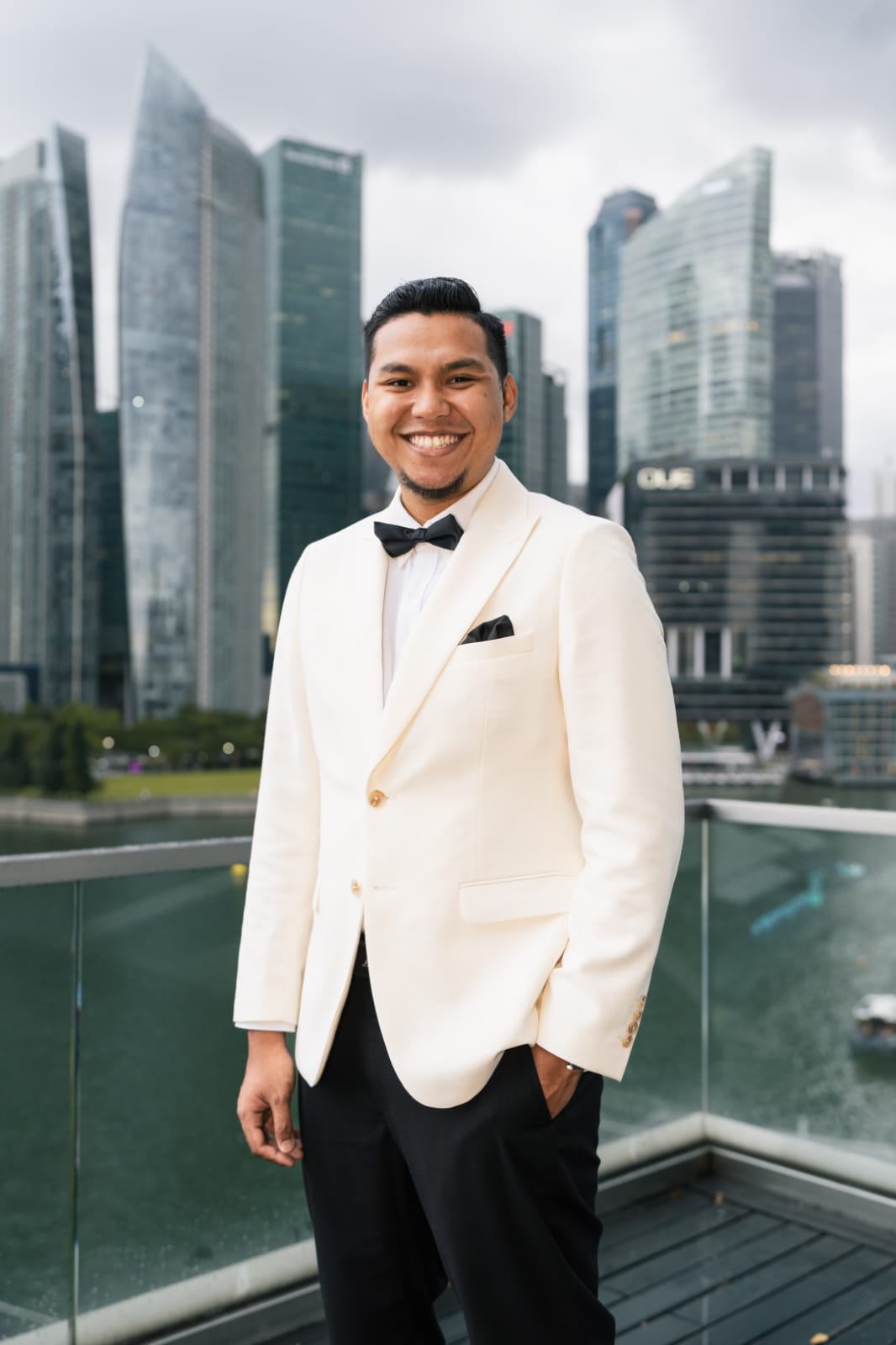In a city like Singapore, where the cost of living is always trying to outpace your ambition, avoiding loans feels like avoiding durians during peak season — nearly impossible and slightly suspicious.
But for Muslims in Singapore, the situation is even trickier. We’re not just juggling bills. We’re juggling bills and beliefs. The question that quietly screams from many prayer mats is this:
Can I take a loan for my home, studies, or car — even if it involves interest — without compromising my deen?
Let’s unpack that.
The Riba Dilemma
First things first. Islam is very clear about riba (interest). It’s not just frowned upon — it’s haram. The Quran says:
“Allah has permitted trade and has forbidden riba.” (Surah Al Baqarah 2:275)
Classical scholars like Imam Abu Hanifa, Imam Malik, Imam Shafi’i, and Imam Ahmad ibn Hanbal unanimously viewed riba as a major sin. Modern scholars like Mufti Taqi Usmani and Sheikh Yusuf al Qaradawi have consistently reinforced this position.
Fatwa from Mufti Taqi Usmani on modern banking riba:
Living in Singapore: Reality Bites
Singapore is not Mecca. Or Kelantan. It’s a high-income, fast-paced society with prices to match. Let’s break it down by needs:
1. Housing
For a young Muslim couple, buying an HDB resale flat might require upwards of $500,000. Unless you’re from the royal family of Brunei, that’s not coming from under your sajjadah. And while the HDB loan is government-backed, it’s still interest-based.
Can this be allowed?
Some scholars say yes, when it’s truly a necessity and no halal alternatives exist. This view is supported under Darurah (necessity) or Fiqh al Aqalliyyat (minority fiqh) — where Muslims in non-Muslim countries are given leeway due to their environment.
Can You Buy a House with an Interest-Based Loan If Necessary?
2. Education Loans
Postgraduate degrees in Singapore (and abroad) can cost anywhere between $30,000 to $120,000. Your career might depend on it. Can you take a loan?
According to Shaykh Faraz Rabbani (SeekersGuidance) and Sheikh Haitham al Haddad, it may be permitted under the concept of hajah (urgent need) — particularly if it’s meant to uplift livelihood or protect one’s future.
Education Loans & Necessity (Shaykh Faraz Rabbani)
“What Are the Guidelines on Student Loans in Non‑Muslim Countries?” – reiterates strict prohibition, with exceptions only in cases of true necessity SeekersGuidance.
“Is Taking a Student Loan with Interest Due to Necessity Permissible?” – says riba is prohibited, but a narrow exception may apply under urgent necessity (haja) if no alternative exists and you intend to refinance into halal options. Is Taking a Student Loan with Interest Due to Necessity Permissible? – Shaykh Faraz Rabbani
That said, it’s highly encouraged to first explore scholarships, Zakat-supported funds, or Islamic-friendly education sponsors. They exist — you just have to dig past the marketing noise.
3. Transport & PHV
Not everyone is buying a Ferrari. Some just need a decent hybrid to get their elderly mother to dialysis and maybe earn a living through PHV (Grab/GoJek).
Islam doesn’t demand martyrdom over mobility. If a car is essential for livelihood or health, scholars allow conditional exceptions — provided the borrower doesn’t indulge in excess and actively seeks halal refinancing when possible.
Housing & Car Loans (SeekersGuidance Fiqh Advice)
- Dr. Monzer Kahf, referencing a Singapore questioner, discusses “quasi-necessities” such as housing and car loans. He highlights that while Islamic financing options in Singapore are limited, helping build Islamic finance infrastructure is a religious duty—but acknowledges conditional allowance if necessity is proven Purchasing Cars and homes through Commercial Loan Banks
So, Can We Ever Take a Loan?
Yes — but conditionally.
If a Muslim in Singapore faces a situation where there is:
- No Sharia-compliant alternative
- A legitimate and personal necessity (darurah or hajah)
- No excessive borrowing or exploitation
- A plan to refinance into halal options when available
Then many qualified scholars allow this — with tawakkul (trust in Allah), taqwa (consciousness), and good intentions.
What Should I Do Then?
- Do the research. Don’t assume all loans are haram or all are halal.
- Speak to a trusted local scholar or MUIS-appointed advisor.
- Avoid unnecessary loans for lifestyle inflation. Don’t borrow to impress your cousin’s cousin’s wedding guests.
- Consider Islamic-friendly financial advisers who can help navigate realistic, Sharia-aligned options.
A Note from This Life — and the Next
In a country where opportunity sometimes arrives wrapped in red tape and monthly instalments, navigating your financial decisions with faith is not just noble — it’s necessary. Loans might feel like the only way forward, but the path you choose can either be lined with barakah or burdened with regret.
This is why working with someone like Hans Edzra, a 5x MDRT consultant specialised in Islamic Finance, is more than just a smart move — it’s a wise one. With certifications ranging from the Australian Islamic Finance Professional Course to FSAC Islamic Legacy Planning and Finerty’s Islamic Financial Planning Associate, Hans brings both global standards and local understanding to Singapore’s Muslim families.
An Islamic-friendly adviser like him doesn’t just talk interest rates. He talks intentions, alternatives, contracts, and conscience. He structures Shariah-compliant funds under MFA Group, AIA Singapore to ensure your savings and insurance align with your beliefs. He guides you in legacy planning so your wealth passes on with both clarity and faith. Most importantly, he helps you ask the right questions:
- Is this loan truly necessary or just nice to have?
- Is there a halal financing structure available — like Murabaha or Ijara?
- Can I avoid riba and still reach my goals?
- How can I uplift my family in dunya without risking my akhirah?
At the heart of it, a trusted adviser doesn’t just calculate your repayments. They remind you that Allah is the best of providers — and that even in financial planning, taqwa comes first.
So if you’re on the edge of a big financial decision — be it a car for PHV, an HDB flat, or a degree that changes your future — don’t make the choice alone. Let someone walk that road with you, someone who honours both spreadsheets and sujood.
Mohamad Hans Edzra — Shariah Compliant Financial Consultant in Singapore
Mohamad Hans Edzra is a Financial Consultant with MFA Group, AIA Singapore, specialising in Islamic investment and protection solutions through structured Shariah-compliant funds. He also provides expertise in Islamic estate planning by writing wills and guiding clients on achieving retirement the halal way. Recognised among the top 10% of Financial Consultants worldwide, Hans is dedicated to helping individuals and families build wealth, protect their legacy, and plan for a secure, Shariah-compliant financial future.
Mohamad Hans Edzra — Shariah Compliant Financial Planning in Singapore
5x MDRT Consultant — top 10 percent worldwide.
Specialised in Islamic Finance with certifications:
• Australian Islamic Finance Professional Course
• FSAC Islamic Legacy Planning
• Finerty Associate Islamic Financial Planning Associate
Structures Shariah compliant funds for investments and insurance under MFA Group, AIA Singapore.
Message on WhatsApp
More Reads
- Halal Investment in Singapore Why Muslims Are Falling Behind
- Discover Dubai Where Modern Muslim Travel Meets Smart Property Investment – Rethinking Islam




